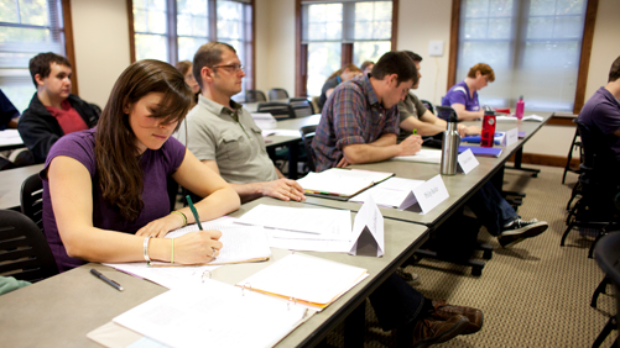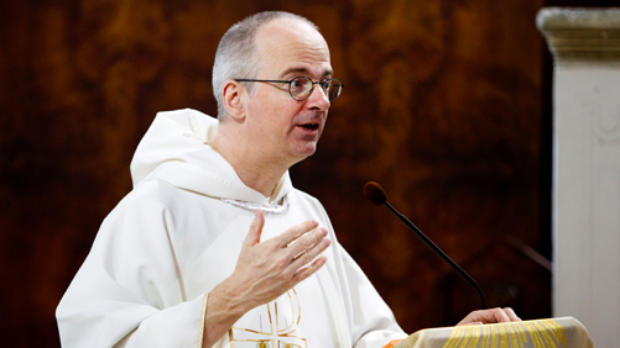“Catholic Thought and Culture I helps students see, in the broad sweep of history from the first Christians to the end of the Middle Ages, the manifold ways in which the Catholic Church has formed and shaped human culture and its expressions. For many of our students, it is their first introduction to the interdisciplinary way of study that characterizes Catholic Studies,” writes John Boyle, director of the Catholic Studies Master of Arts degree program. This course is one of the two required courses, but it is not necessarily the course students begin with; nonetheless, it is one of the foundational courses in the program, as well as one of the most intellectually comprehensive.
The focus of the course is the intersection of faith and culture throughout history; studied works include works of literature, philosophical arguments and theological debates. Dr. Robert Kennedy, current Thought and Culture I professor, notes that the depth and breadth of the content for the course can be formidable. “For the instructor, the challenge of this course is to present more than a thousand years of Catholic culture – philosophy, theology, literature, history, art – in one semester. No instructor and no syllabus is really adequate to the task, but there is a reward in helping students to begin to see how all of the pieces really do form an integrated whole. The goal, to the extent that we achieve it, is to enable the student to grasp and understand the unity of Catholic culture.”
The reading list this year includes a variety of works: Documents of the Christian Church; Cyril Richardson’s Early Christian Fathers; Christopher Dawson’s Religion and the Rise of Western Culture; Benedict Groeschel’s Augustine: Selected Writings; Henry Chadwick, Augustine: A Very Short Introduction; Josef Pieper, Scholasticism; Ralph McInerny, Thomas Aquinas – Selected Writings; and Dante, Divine Comedy. John Lattyak, current CSMA student, finds that the course is unique in its “broad historical and interdisciplinary attitude.” He adds, “It gives the course a true sense of the word ‘catholic’ as universal. It is also a foundational perspective. Learning about the multitude of events, traditions and great minds that have formed the faith has provided me with an authentic perspective.”
This interdisciplinary course begins with an exploration of the relations between Catholic Christian faith and culture exhibited through works of imagination and intellect drawn from the New Testament through the medieval periods.As part of the MA program core curriculum, the course focuses on the multifaceted Catholic tradition but includes perspectives from Christians of other denominations, as well as non-Christians in order to show the dialogue between Catholic thought and other cultural views and accomplishments.
“One thing unique about this course is its great scope. It immerses one into the exciting story of the rise and development of Catholic thought and culture. Certainly this course changes the way you understand Catholicism; it serves to bring you intellectually deeper into the truths of the Catholic faith.”
Michael Panka Catholic Studies Masters of Arts student
“I am taking another class, specifically on Augustine’s City of God, but Thought and Culture I offers historical and cultural insight into Augustine’s world that is crucial to understanding any of Augustine’s texts. This class has encouraged a realistic vision of Church history and its culture – it has given me a context in which I have been slightly ignorant and also has taken away my overly romantic view of Catholic thinking, each so that I may realistically see into the mind of Christ, the truth.”
Laura Eusterman Catholic Studies Masters of Arts student
Read more from Perspectives







